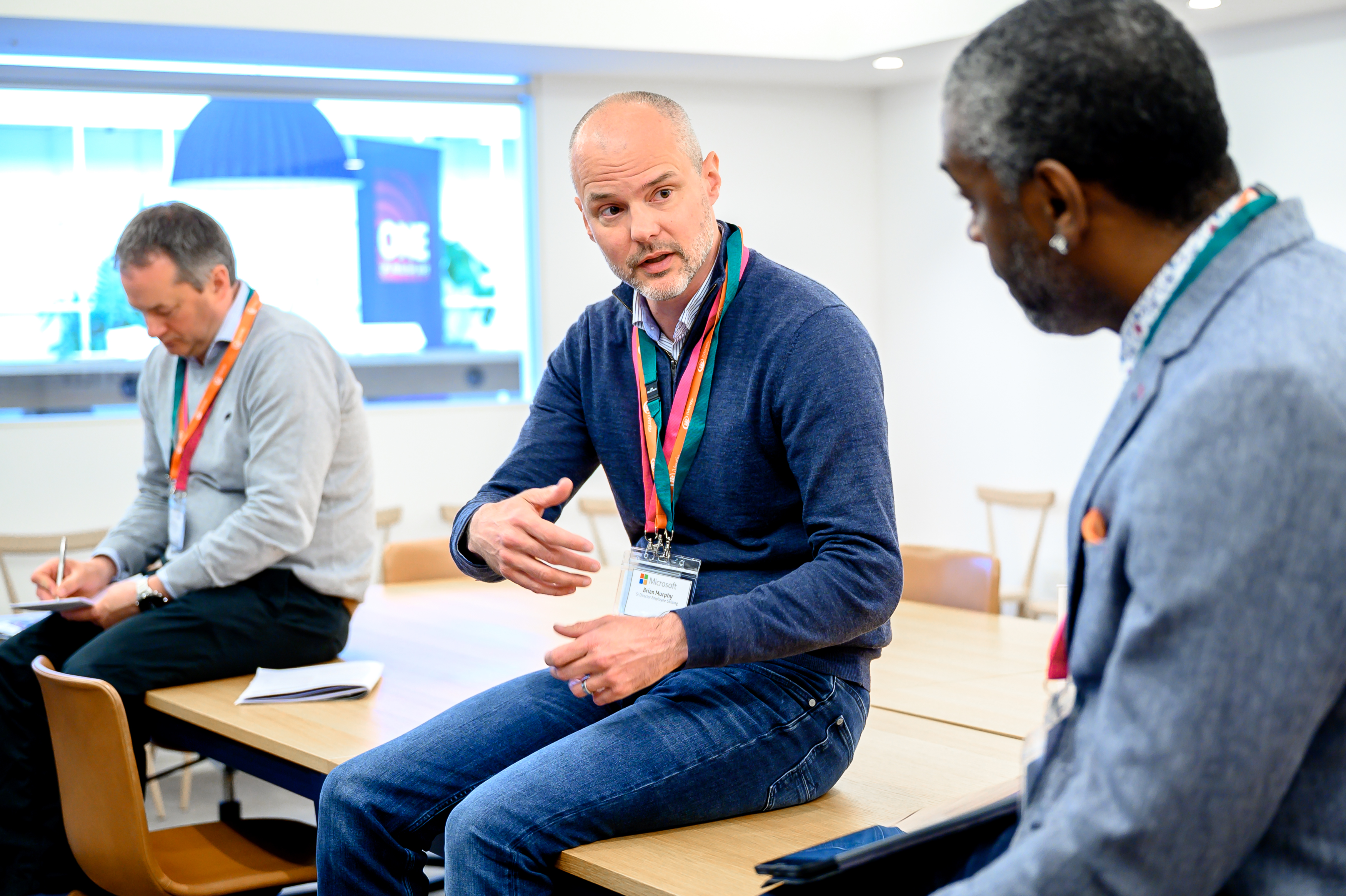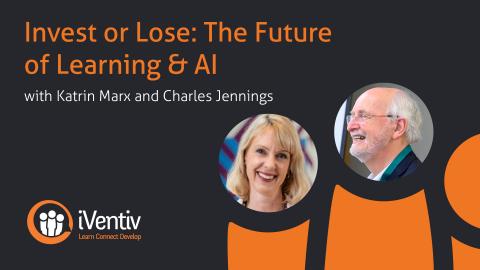What is coaching in the workplace?
According to Parsloe, Coaching is a ‘process that enables Learning and Development to occur, and thus performance to improve.’ (Parsloe, 1999).
Coaching refers to an interaction between two people – a coach, and a coachee, with sessions specifically aimed at performance development. It places emphasis on empowerment, enhancing a coachee’s understanding of their own performance; building their confidence and, in turn, their ability to manage and develop themselves.
In this blog, we’ll explore why coaching is so high on the agenda for L&D, Talent, and Executive Development.
Why are learning, talent, and leadership execs so interested in coaching right now?
For businesses, the recent increase in economic and global uncertainty and ambiguity has called on them to adapt with agility and speed if they want to outpace disruption.
That includes the Global Heads of Learning, Talent, and Leadership who attended iVentiv events over the last year. Before each event, we sent them a questionnaire about their priorities. In the iVentiv Pulse Report, you can see the collated stats from every senior executive who completed those questionnaires. They show that:
- For the 578 respondents from 435 companies that completed the questionnaire, 17% identified coaching as a key area for their function
- That was especially true in the US: 23% of respondents in the US, 19% in the UK, and 11% in the rest of Europe selected coaching as a priority
- Leadership development was the most selected focus overall, especially for leaders who are interested in coaching: respondents selecting leadership, notably, were much more likely to select coaching as one of their priorities
- In their comments, they talked about needing to develop “leadership capability” and a “culture of feedback and coaching to elevate talent”
There are several reasons why coaching might be on the minds of so many:
- Personalized development: Coaching provides a personalised approach to development, allowing individuals to work on specific goals and challenges in a one-on-one setting. This personalised approach can be especially beneficial for executives who may have unique leadership styles or specific development needs.
- Growing demand: Coaching has become increasingly popular in recent years (in the US alone, the coaching industry has grown by 30% in five years), and many executives may be interested in exploring this trend to stay competitive and meet the demands of their organisation.
- Focus on soft skills: Soft skills such as communication, emotional intelligence, and interpersonal relationships are becoming increasingly important in the workplace, and coaching can be an effective way to develop these skills.
- Remote work: With the rise of remote work, coaching can provide a valuable way for executives to stay connected with their teams and maintain a sense of community and support.
- Employee retention: Coaching can also be used as a tool to retain top talent by showing a commitment to employee development and growth.
Jay Moore, Global Learning and Culture Leader, GE references the importance of coaching at GE, how the company ‘spends a great deal of time with our most senior leaders for them to be better coaches’ and how it ‘continues to be a needed and necessary skill for leaders’. In essence, it is the tailored approach to development that coaching offers, that can help executives improve their leadership skills and achieve their goals, making it an attractive option for learning, talent, and leadership executives to invest in.
How is coaching done effectively?
It’s easy to see why coaching might be appealing for learning and talent execs. Leadership is high on the agenda and the widespread understanding that learning from others and learning in work is more effective than classroom teaching means that HR teams are looking to develop talent in a more hands on way.
Enter coaching. The key thing that many L&D, Talent and Exec Development teams like about coaching is that it is entirely non-directive; coaches are encouraged to limit the giving of advice and to instead focus on assisting coachees in finding their own solutions to problems.
The theory is that through short, sharp meetings that talk about key goals, progress, and future actions, coaching maximises a coachee’s performance through learning, rather than teaching. It’s an approach designed to develop a coachee’s ability to take responsibility for, not only their own development, but also their performance.
Downey’s (1999) Spectrum of Coaching Skills suggests a number of key attributes of the non-directive coaching approach that sit on the ‘pull’ end of the spectrum (helping someone to solve their own problems):
- Asking questions to raise awareness
- Active listening
- Paraphrasing
- Summarising
- Reflecting
By engaging in each of these activities, the coachee gains a sense of autonomy over their own performance, and develops an understanding of what it is they need to do to improve it.
Although it may seem that all of the responsibility to successfully develop employees falls on the coach, the prevailing wisdom is that there is also significant responsibility on the coachee to ensure they achieve their goals, retain knowledge, and apply their experiences.
David Kolb suggests that while the coach’s role is to assist coachees to move around the experiential learning cycle, it is up to the coachee to actively participate in the process, take responsibility for their own decisions, complete agreed actions, reflect on and review experiences, and manage their own ongoing development. That constant emphasis on practical application to real tasks and real business goals seems to be making coaching all the more appealing.
What are the benefits of coaching?
Learning leaders agree that the overall goal of a coaching session is for the coachee to gain a greater understanding of their own work and how that contributes to the organisation. For many, it not only helps to further learning and solidify it, it gives the coachee dedicated time to focus on performance development, making them more satisfied with and effective in their role.
And the benefits are wide-ranging:
- Stress reduction
- Increased motivation
- Increased confidence
- Increased self-awareness and self-management skills.
For the organisation, coaching builds better working relationships in that issues are shared in an environment that is psychologically safe, it enhances the transfer of learning to the workplace as well as the retention of knowledge within the organisation.
However, while this suggests that effective coaching has a crucial part to play in organisations, coaching advocates also argue that there are barriers that prevent it from being as effective as it could be:
- Lack of top-down support
- Resentment felt by those not involved in the scheme or the perception of favouritism
- The blurring of role boundaries
- Leadership and management styles of the organisation – a smaller organisation, for instance, may have more directive approaches to leadership and management, which make the introduction of a different ‘style’ more difficult
- Cost
- Coachee commitment
Are you implementing coaching in your organisation? Is it one of your top priorities? Read more about this and the other top priorities for decision makers in learning, talent, and leadership, in the iVentiv Pulse 2023 Report.











